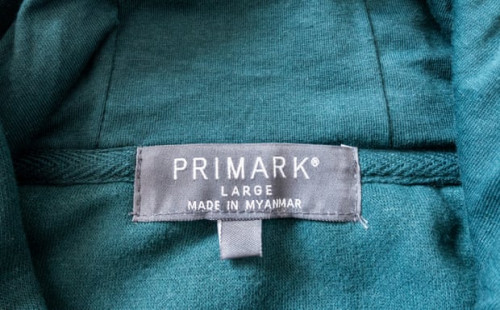Primark vendor accused of locking employees in factory during Myanmar protests

Garment workers in Myanmar who work for Primark were locked
inside their factory by supervisors who tried to prevent them from joining
anti-coup protests.
Labors employed by GY Sen, vendor of Primark, claimed that
their supervisors had sought to prevent them from missing work to take part in
protests in the main city Yangon on 18 February. Up to 1,000 workers were
trapped inside, according to workers, who said they were able to break free
after several hours.
According to staffs, about 20 were later fired for absent
shifts to join in the civil disobedience movement, through which huge numbers
of people across the country have declined to work. The movement has stunned
the military junta, severely disrupting key sectors such as banking and trade.
A representative for GY Sen denied claims that workers had
been locked in or fired for protesting.
Primark said it launched an enquiry into the factory on 5
March after a local labor organization raised worries, but did not specify the
details. It added that it would not place any further orders with the factory
until the inquiry was completed.
Garment workers, mostly young women, have played a leading
role in demonstrations opposing the military, which ousted the country’s
democratically elected government last month. Many are continuing to organize
protests, despite the junta imposing a campaign of terror and intimidation
against opponents.
Union leaders complaint in the day but spend their evenings
in hiding, sleeping at a different location every night to avoid the security
forces. After dark, police and soldiers go door-to-door, seeking out activists.
On top of the dangers posed by the military, workers’ groups say many employees
have also been threatened with dismissal if they miss work to protest.
Primark said in a statement: “We will work with our supplier
and, where required, other trusted third parties. If the factory is found to
have breached our code [of conduct], we will work with the supplier and factory
to remediate any issues.”
It added that Primark had a longstanding and positive
relationship with the supplier, saying: “We believe it is our responsibility to
do all we can to support workers in our supply chain.”
Workers at GY Sen said that, even before the coup, they were
put under pressure to complete excessive workloads and threatened with
dismissal if they refused extra shifts. Staff were paid as little as 1,200 kyat
an hour (60p an hour) to work overtime, according to salary statements.
A spokesperson for GY Sen denied that the workers were not
paid properly, saying: “We have paid them [for overtime] according to the
standard rate under the law.”
.png)













